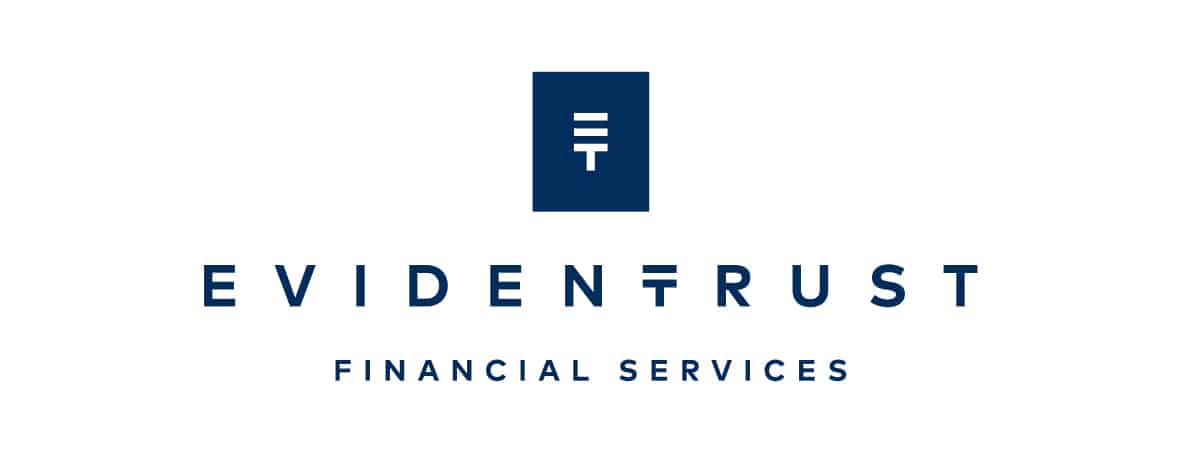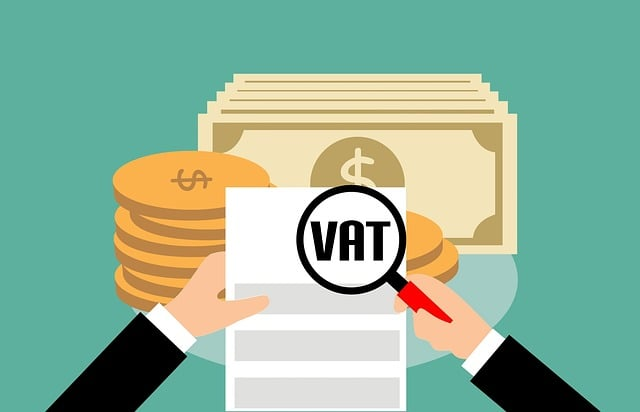Do you have a business in Cyprus and want a brief and easy to follow guide of the Cyprus VAT system? Do you have questions regarding VAT registration and VAT submission? Following is a comprehensive guide for Cyprus VAT rules. This article has been updated for 2022 Tax law. This article will apply to tax years ending 31 December 2022.
Introduction
Welcome to our guide on the Cyprus Value Added Tax (VAT) system, regulations, rates, and the newly implemented Tax For All system introduced in 2022 by the Cyprus Tax Authorities. As a leading provider of accounting, audit, tax, and advisory services in Cyprus, we aim to provide you with valuable insights into the Cyprus VAT landscape. In this article, we will explore the key aspects of the Cyprus VAT system, including VAT rates, registration, compliance, the VAT Information Exchange System (VIES), and the newly introduced Tax For All system. Whether you’re a business owner or an individual seeking to understand the VAT environment in Cyprus, this article will serve as a valuable resource.
1: Understanding Cyprus VAT
1.1 What is VAT?
Value Added Tax (VAT) is a consumption tax and an essential component of the tax system in Cyprus, is levied on the supply of goods and services within the country, as well as on the acquisition of goods from the European Union and the importation of goods into Cyprus. Taxable individuals are responsible for charging VAT on their taxable supplies (output tax) and are also subject to VAT on goods or services they receive (input tax).It is an indirect tax that is ultimately borne by the final consumer. In Cyprus, VAT is a fundamental source of revenue for the government.
1.2 VAT in Cyprus – An Overview
Cyprus follows the European Union’s VAT directives, with its own specific regulations. The Cyprus VAT system requires businesses to register for VAT if their taxable turnover exceeds certain thresholds.
1.3 VAT Registration Thresholds
VAT registration is compulsory for businesses meeting either of the following criteria:
– Turnover exceeding EUR 15,600 during the preceding 12 months.
– Expected turnover exceeding EUR 15,600 within the next 30 days.
1.4 Voluntary VAT Registration
Even if a business’s turnover does not exceed the mandatory VAT registration threshold, it can still opt for voluntary registration with the VAT department. Voluntary registration can provide benefits, such as enabling businesses to reclaim input VAT on their expenses.
2: Cyprus VAT Rates and Exemptions
2.1 Standard VAT Rate
The standard VAT rate in Cyprus is currently set at 19%. This rate applies to most goods and services.
2.2 Reduced VAT Rates
Cyprus VAT Rates also includes the reduced VAT rates of 9% and 5%.
Reduced VAT Rate of 9%
This rate applies to accommodation, restaurant, and catering services, as well as certain local passenger transport services. It is also applicable to the supplies of goods and services provided by old people’s homes, subject to certain exemptions.
Reduced VAT Rate of 5%
This rate is applicable to various goods and services, including foodstuffs, pharmaceutical products, books, newspapers, and other specific items.
Additionally, for individuals or eligible persons acquiring new buildings/houses as their primary and main residence, the reduced rate of 5% applies to the first 130 square meters of the buildable area and up to a total cost of €350.000. Provided, however, that the residence does not exceed 190 square meters of buildable area, and a total cost of €475.000. Any residence exceeding 190 square meters of buildable area and/or having a total cost of more than €475.000 will be subject to VAT at 19% on the total cost. Individuals who have claimed the 5% VAT rate for their primary residence can apply for the reduced VAT for a new residence before a period of ten years has elapsed, provided they refund to the Tax Authorities the amount of VAT resulting from the application of the reduced rate instead of the standard rate (i.e., the difference between 19% and 5% = 14%) on the value of the residence for the remaining years of the ten years period (whereas before the change, they had to refund the total VAT benefit obtained).
Furthermore, the Cyprus VAT legislation states that the 5% reduced rate applies to the renovation, repair, and extension of used private residences that are considered old, with a minimum period of three years elapsed from their first use. The value of materials constituting over 50% of the service’s total value is excluded from the reduced rate.
2.3 VAT Exemptions and Zero-Rated Supplies
Certain goods and services are exempt from VAT in Cyprus, meaning no VAT is charged on their supply. Zero-rated supplies, on the other hand, are goods and services that are subject to VAT at a 0% rate.
Exports from Cyprus are zero-rated, meaning no VAT is charged on exports, and companies can recover any input VAT related to these transactions. Zero-rated treatment also extends to the supply, modification, repair, maintenance, chartering, and hiring of qualifying aircraft and qualifying vessels. Additionally, the supply of goods for the fueling and provisioning of qualifying vessels and aircraft, along with services meeting the client needs of qualifying vessels/aircraft, are also treated as zero-rated. A qualifying aircraft refers to an aircraft predominantly used by airlines operating for reward on international routes, while a qualifying vessel pertains to a vessel used for industrial purposes in navigation on the high seas.
Supplies of goods taking place outside the European Union fall outside the scope of Cyprus VAT.
3: VAT Registration in Cyprus
3.1 Compulsory VAT Registration
VAT registration is compulsory for businesses meeting either of the following criteria:
- Turnover exceeding EUR 15,600 during the preceding 12 months.
- Expected turnover exceeding EUR 15,600 within the next 30 days.
Businesses with turnover below EUR 15,600 or with supplies falling outside the scope of VAT but eligible for claiming input VAT have the option to register voluntarily.
Registration is also obligatory for businesses that:
- Make acquisitions of goods from other EU member states exceeding EUR 10,251.61 during a calendar year.
- Engage in intra-Community supply of goods or services, or supplies of goods subject to reverse charge provisions. No registration threshold exists for intra-Community supplies.
Furthermore, businesses engaged in economic activities due to services received from abroad, where Cyprus VAT must be accounted for under reverse-charge provisions, have an obligation to register if their total turnover exceeds EUR 15,600 within any consecutive 12-month period.
Supplies of VAT-exempt goods and services and disposals of capital items are not considered when determining the annual turnover for registration purposes.
3.2 VAT Registration Process
The VAT registration process involves submitting an application to the Cyprus Tax Department, providing relevant information about the business, its activities, and its anticipated turnover. Upon successful registration, the business will receive a VAT number.
3.3 VAT Registration Obligations and Deadlines
Once registered for VAT, the taxable person in Cyprus has various obligations, including issuing VAT invoices, maintaining proper accounting records, and submitting periodic VAT returns.
3.4 VAT Invoicing Requirements
VAT invoices must include specific details, such as the supplier’s and recipient’s information, the VAT rate applied, and the total VAT amount. Invoices should be issued in a timely manner and retained for future reference.
4: Cyprus VAT Returns and Compliance
4.1 VAT Return Filing Frequency
VAT returns must be submitted electronically on a quarterly basis, with VAT payment due by the tenth day of the second month following the end of the VAT period.
4.2 VAT Refund
If input VAT exceeds output VAT within a quarter, the difference is either refunded (subject to conditions) or carried forward as credit to offset against VAT payable in subsequent returns.
Taxpayers claiming VAT refunds are entitled to repayment of principal amounts together with interest if the repayment is delayed for more than four months from the date of claim submission.
The grace period for the Cyprus Tax Department to repay refundable amounts is extended to eight months if the Commissioner of Taxation is conducting an investigation related to the claim.
From 20 August 2020, VAT refunds may be suspended if the taxpayer fails to comply with income tax return filing obligations or fails to submit a VAT refund application within six years from the time the VAT refund arose. In such cases, an application for VAT refund may still be submitted, subject to the consent of the Tax Commissioner.
4.3 Intrastat Reporting
Businesses involved in intra-community trade with other EU member states may also have obligations to submit Intrastat reports, providing statistical information about the movement of goods.
4.4 Penalties for Non-Compliance
Failure to comply with Cyprus VAT regulations can result in penalties, including fines and interest charges. It is essential for businesses to meet their VAT obligations to avoid such penalties.
5: VAT Information Exchange System (VIES)
5.1 Introduction to VIES
The Cyprus VAT Information Exchange System (VIES) is a crucial component of the European Union’s (EU) VAT regime. VIES is an electronic system that facilitates the exchange of VAT-related information between EU member states. It serves as a platform for businesses to verify the validity of VAT identification numbers (VATINs) provided by their trading partners in other EU countries.
5.2 Purpose of VIES
The primary purpose of VIES is to support the proper functioning of the EU’s single market by promoting transparency and compliance in cross-border trade. By enabling businesses to validate the VAT numbers of their counterparts, VIES helps prevent VAT fraud, such as the use of fake or invalid VAT numbers. It enhances the efficiency and accuracy of VAT reporting and collection processes, contributing to a level playing field for businesses across the EU.
5.3 VIES Registration
Businesses engaged in intra-community trade are required to register for VIES in their respective EU member states. The registration process involves providing relevant business information and obtaining a VIES VAT number.
5.4 VIES Reporting Requirements
Registered businesses must regularly submit VIES reports to their local tax authorities, providing details of their intra-EU transactions. These reports typically include information such as the VATINs of their customers or suppliers, the nature and value of the transactions, and any applicable VAT rates. The reporting frequency varies among EU member states but is usually on a monthly or quarterly basis.
5.5 Importance of Accurate VIES Reporting
Accurate and timely VIES reporting is essential to avoid potential penalties and ensure compliance with EU VAT regulations. It also helps businesses maintain a good reputation and build trust with their trading partners.
6: Tax For All: The New Cyprus Tax and VAT System
6.1 Introducing Tax For All
Tax For All is a new digital platform introduced by the Cyprus Tax Department to streamline and simplify VAT reporting and compliance processes. The second stage is the implementation of the tax system.
6.2 Benefits of Tax For All
Tax For All offers several benefits, including simplified VAT reporting, faster processing times, reduced paperwork, and improved accuracy for a taxable person.
The Tax For All system enables businesses to submit their VAT and VIES reports electronically through a secure online portal. It automates data validation, reduces errors, and facilitates efficient communication with the tax authorities.
7: Cyprus VAT and International Trade
7.1 VAT on Imports
Imported goods into Cyprus are generally subject to VAT at the applicable rate. VAT is payable at the time of importation, and certain customs procedures and exemptions may apply.
7.2 VAT on Exports
Exports of goods and certain services from Cyprus to non-EU countries are generally zero-rated for VAT purposes. Businesses engaged in export activities can claim VAT refunds or apply for specific schemes, such as the VAT suspension scheme.
7.3 VAT Refunds for Non-EU Businesses
Non-EU businesses that incur VAT in Cyprus may be eligible to claim VAT refunds under certain conditions. Appropriate procedures and documentation must be followed to initiate the refund process.
7.4 VAT on Cross-Border Services
VAT treatment for cross-border services varies based on the nature of the services and the location of the recipient. Businesses need to assess the applicable rules and determine their VAT obligations accordingly.
Conclusion
Understanding the Cyprus VAT system, compliance requirements, and recent developments is essential for businesses operating in Cyprus. This brief guide has provided valuable insights into the Cyprus VAT system, including registration, rates, compliance, the VAT Information Exchange System (VIES), and the newly introduced Tax For All system. By staying informed and proactively managing VAT obligations, businesses can navigate the complexities of the Cyprus VAT system, ensure compliance, and optimize their tax processes. For personalized assistance or professional advice regarding VAT matters in Cyprus, feel free to reach out to our team of experts. We are dedicated to helping businesses achieve VAT compliance and operate efficiently in the Cyprus market.
FQA
How much is VAT in Cyprus?
The standard VAT rate in Cyprus is 19%. However, there are also two reduced VAT rates: 9% for specific sectors like accommodation, restaurant and catering services, and certain local passenger transport services, and 5% for items like foodstuffs, pharmaceutical products, books, newspapers, and more.
Do I need to register for VAT in Cyprus?
If your business exceeds the VAT registration threshold or engages in certain types of transactions (e.g., acquisitions from other EU member states, intra-Community supplies), VAT registration is compulsory. You may also choose to voluntarily register for VAT if your turnover is below the threshold or your supplies are outside the scope of VAT but you want to claim input VAT.
What is the threshold for VAT registration in Cyprus?
The threshold for compulsory VAT registration in Cyprus is a turnover in excess of EUR 15,600 during the preceding 12 months or an expected turnover in excess of EUR 15,600 within the next 30 days.
How can I check if someone is VAT registered?
In Cyprus, you can verify the VAT registration status of a business by using the VAT Information Exchange System (VIES) provided by the European Commission. VIES allows you to validate VAT number of registered businesses within the EU.











